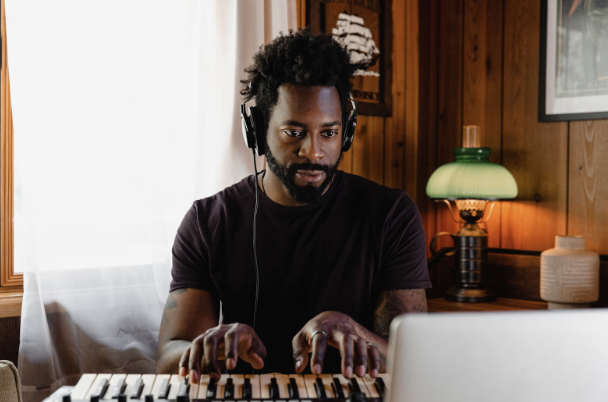As a musician, creating and sharing your music with the world is a deeply rewarding experience. In fact, music is one of the best ways for basically anyone to express themselves, whether it’s listening to it or creating it. Like most folks, when it comes to expressing themselves and their talent, they want to share it with the world, something that’s totally understandable!
But when it comes to all original content, especially music, you need to be careful. In fact, ensuring that you receive proper credit for your songs is essential for protecting your creative rights and building your reputation in the music industry.
Sadly, there are a lot of artists out there, from DJs to singers, who are not getting credit for their hard work, and if someone is using your work, you deserve credit and compensation! From songwriting credits to royalties, here are some important steps musicians can take to ensure they get the credit they deserve for their songs!
Document Your Work
A lot of musicians learned the hard way because you have to give out so much proof that what you have written was originally created by you. So, with that said, before releasing your music, it’s crucial to document your creative process and ownership of your songs.
This means that you have to keep anything and everything showing proof of ownership, such as detailed records of your songwriting sessions, including lyric sheets, chord progressions, and audio recordings. Additionally, consider registering your songs with a performing rights organization to establish proof of ownership and facilitate royalty collection. You need to be protected, and the internet can be ruthless when it comes to taking things and claiming ownership.
Monitor and Enforce Your Rights
It’s going to be a really good idea to just go ahead and keep track of where your music is being used and monitor for instances of unauthorized use or infringement. It’s really going to help if you go ahead and utilize digital distribution platforms, content identification services, and copyright enforcement tools like a music catalog valuation to help you out when it comes to monitoring for unauthorized uploads, cover versions, or samples of your music.
Technically, platforms like YouTube tend to have a program like this built-in, but it’s still going to help a lot to still look into this platform or software for use across the web. So be sure to take prompt action to enforce your rights and ensure that you receive proper credit and compensation for your songs.
Sometimes, You Might Need to Seek Legal Advice
Honestly, this is something that’s extremely far from ideal, but you need to keep in mind that this is your work, and people just can’t try and steal something that belongs to you. So, with that said, if you encounter disputes or issues regarding songwriting credits, ownership, or royalties, don’t hesitate to seek legal advice from a qualified attorney specializing in music law.
No one really wants to go this route, but sometimes you just don’t have a choice in it. A legal expert can help you understand your rights, negotiate agreements, and take appropriate action to protect your interests and ensure that you receive proper credit and compensation for your songs.
Include Credits in Metadata
Where do you plan to put up your music? Spotify? YouTube? Soundcloud? Maybe even some other platform? When distributing your music on digital platforms such as streaming services, make sure to include accurate metadata that credits all contributors to the song. This includes songwriters, composers, performers, producers, and any other collaborators involved in the creation of the music.
So why do this? Well, providing comprehensive credits ensures that all contributors receive proper recognition and royalties when the song is streamed or downloaded. Technically, if it gets downloaded, this could be scrubbed clean, but if you have this posted on certain websites, the data will still at least be on that said website to help prove that this is yours.
Utilize ISRC and ISWC Codes
So what both of these are is essentially something that can help prove what’s yours. These are both unique identifiers assigned to individual recordings and musical compositions, respectively. Since metadata doesn’t always do this, this is basically another layer of protection. So, with that said, registering your songs with ISRC and ISWC codes helps track usage and ensure proper attribution and royalty distribution across different platforms and territories.
Keep Educating Your Audience
Sometimes, people steal without actually knowing that they’re stealing. They might want to use your work in something, but they don’t know what they’re doing is wrong, and sometimes, educating them can be all you need to do to get this sorted. So, try and take proactive steps to educate your audience about the importance of crediting musicians and supporting their work. You can include information about songwriting credits, copyright ownership, and proper attribution in your promotional materials, social media posts, and liner notes.




